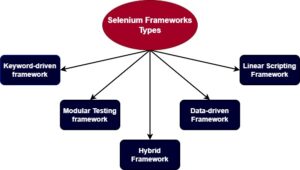With the rising costs of resources, efficiency and effectiveness are paramount to business success. Lean methodology is becoming increasingly popular as organizations seek ways to reduce waste, improve processes, and increase productivity. As businesses adopt lean philosophies, managed IT services can play an important role in supporting these methodologies. In this article, we delve into lean’s core principles and explore how IT support in Raleigh can help businesses adopt and optimize lean practices.
What is Lean Methodology?
Lean methodology, also called “lean thinking,” originated in the manufacturing sector, particularly pioneered by Japanese companies like Toyota. The essence of lean thinking lies in its commitment to maximizing customer value while minimizing waste. In this context, waste refers to any activity that does not contribute directly to creating value for the customer. Five key principles underpin lean methodology:
Define Value: Understand and define value from the customer’s perspective. What do customers truly want and are willing to pay for? This principle requires a deep understanding of customer needs and preferences to ensure that resources are focused on delivering value.
Map Value Stream: The next step is to identify the series of activities or processes that contribute to delivering that value. This includes both value-adding and non-value-adding activities. Mapping the value stream helps identify areas of waste and inefficiency.
Create Flow: Create a smooth, continuous flow of work through the value stream. Minimize interruptions, bottlenecks, and delays. Organizations can reduce lead times, eliminate excess inventory, and respond more quickly to customer demands by ensuring a steady flow.
Establish Pull: Implement a pull-based system, where production or work is initiated based on actual customer demand rather than blindly pushing products or services into the process. This reduces overproduction, prevents excess inventory, and helps align production with consumption.
Pursue Improvement: Strive for continuous improvement (kaizen) in all aspects of the organization. Regularly assess processes, identify areas for improvement, and implement changes. Encourage a culture of learning, innovation, and problem-solving among employees.
The benefits of adopting lean methodology are substantial. Businesses can experience reduced costs, improved quality, faster lead times, increased customer satisfaction, and enhanced employee morale. However, the journey to becoming a lean organization is not without challenges, especially when implementing these principles in a complex and technology-driven environment.
How Managed IT Services Support Lean
As businesses increasingly depend on technology to streamline operations and deliver value to customers, managed IT services become pivotal in enabling the adoption and optimization of lean methodology. Here is how managed IT services can support this endeavor:
Scalability and Flexibility: Lean organizations must be agile and responsive to changes in demand. Managed IT services offer scalable solutions that can be easily adjusted to accommodate shifting business needs. This flexibility allows organizations to efficiently scale up or down as required, greatly reducing resource waste.
Data-Driven Decision-Making: Lean methodologies thrive on accurate data for informed decision-making. Managed IT services can set up data analytics tools that provide real-time insights into operations. This helps organizations identify bottlenecks, track performance metrics, and make data-driven process improvements.
Digital Transformation and Collaboration: Managed IT services can implement technologies such as cloud computing, enterprise resource planning (ERP) systems, and collaboration tools. These technologies enable better integration, information sharing, and communication across departments, enhancing flow and reducing time waste.
Process Automation: Managed IT services can identify manual and repetitive tasks that contribute to waste in processes. By implementing automation tools and workflows, organizations can streamline operations, reduce errors, and improve efficiency. This automation can give employees time to focus on tasks that truly add value to the customer.
Lean Tools Integration: Managed IT services can help integrate lean-specific tools, such as Kanban boards, value stream mapping software, and continuous improvement tracking systems, into the organization’s IT infrastructure. This enables smoother implementation and utilization of lean methodologies.
Employee Empowerment: Proper training is essential as organizations adopt new lean processes and technologies. Managed IT services can provide training programs, resources, and ongoing support to ensure employees can effectively utilize the tools and technologies in their daily work.
Waste Identification and Reduction: Managed IT services can help identify and eliminate digital waste. For instance, unused software licenses can cost thousands of dollars a year, while inefficient workflows can waste hours of valuable productive time. By optimizing digital resources, organizations can reduce costs and enhance overall efficiency.
IT Support: Downtime and disruptions can lead to waste in processes. Managed IT services offer remote monitoring and proactive support, promptly addressing issues and ensuring that IT systems run smoothly. This minimizes downtime and prevents interruptions, allowing the organization to maintain a steady workflow.
Cybersecurity and Compliance: Efficient cybersecurity practices are essential for preventing the wastage of resources due to security incidents, remediation efforts, and legal consequences. Organizations can allocate resources more effectively by minimizing security breaches and incidents, aligning with lean’s focus on reducing waste.
The lean approach can help businesses to streamline their processes, reduce resource waste, and improve overall efficiency. The importance of these benefits in today’s highly competitive landscape cannot be overstated. By partnering with a reputable managed IT services provider with a full suite of solutions, organizations can leverage technology to implement lean methodologies successfully and drive positive change.



